Best Crypto Payment Gateways – May 2025
- Coinspaid: Best for multiple crypto varieties and overall security
- Bitpay: Best overall crypto payments gateway
- Mifinity: Best for secure fiat and crypto payments
- Paypal: Best for crypto transactions in the US
- Coinmama: Best for ease of use and prompt customer service
- Nixmoney: Best for anonymously accepting Bitcoin payments
- NowPayments: Best for small businesses in Europe
- Lunu: Best for accepting retail crypto payments in-store or online
Ranked: Our Crypto to Fiat Payment Gateway Picks
1. Coinspaid
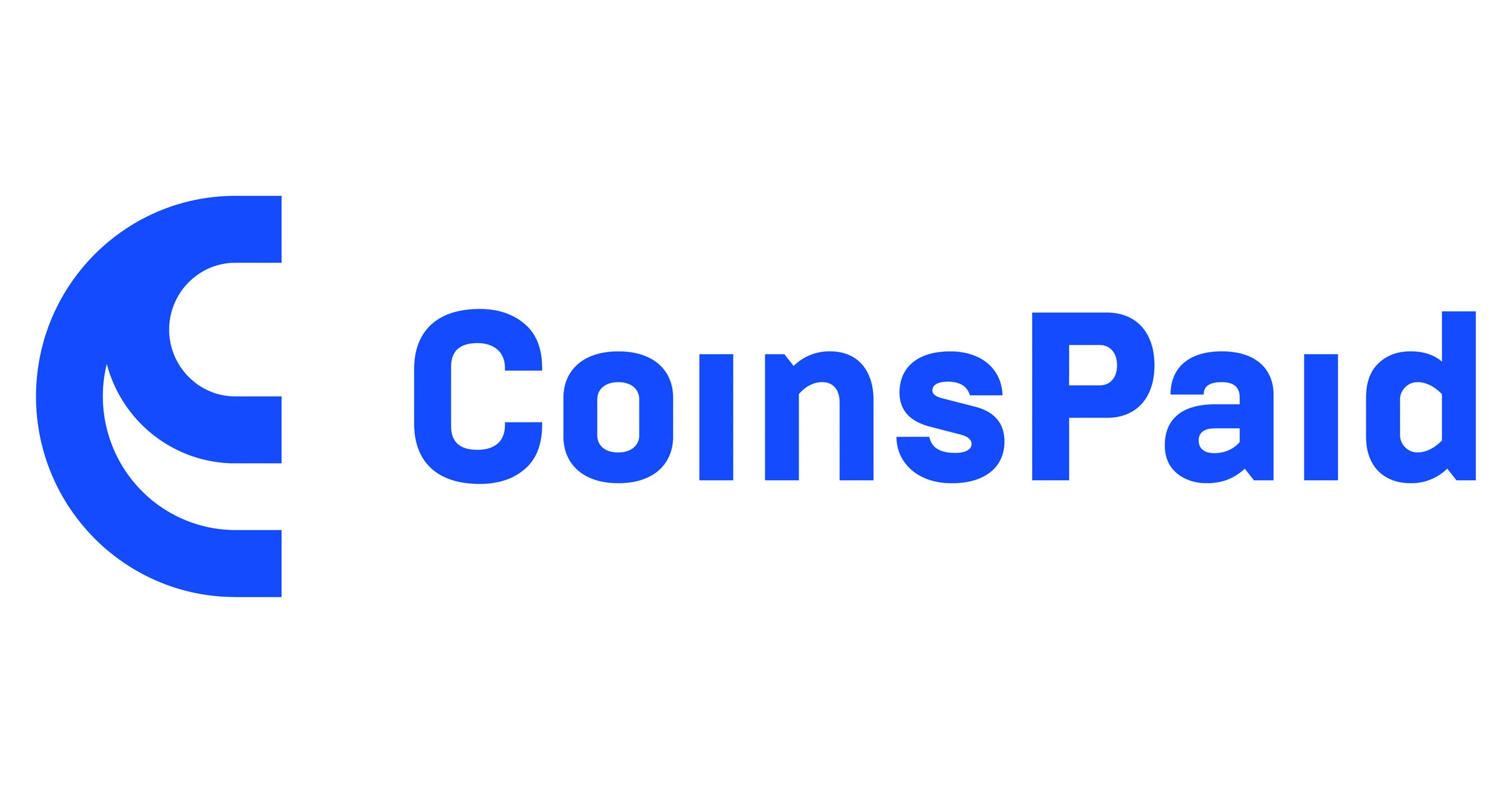
With transaction support for over 30 leading cryptocurrencies like Bitcoin, Ethereum, Ripple, as well as 20+ major fiat currencies like USD, CAD, GBP, EUR, and more, Coinspaid tops our list of crypto payment gateways. Apart from offering instant deposit and withdrawals, Coinspaid also solves the interoperability concern and charges zero commission for all crypto transactions, thereby becoming the one-stop payment gateway for new and experienced crypto users.
Aiming to democratize cryptocurrencies, Coinspaid was launched in the year 2014. With an overall rating of 4 / 5, it offers a universal, virtual crypto payment solution for all businesses and individual users. One can easily deposit fiat and cryptocurrencies without worrying about interoperability, store cryptos in the platform’s secure hot wallet, swap currencies, cash-out cryptos almost instantly and also benefit from Coinspaid’s white label payment solution. Therefore, Coinspaid is described as an all-inclusive financial ecosystem, ideal for businesses, gambling or betting sites and other crypto transactions.
Unlike various other competitors, Coinspaid allows users to transact anonymously over the platform. One does not require to declare their bank details to use the platform for crypto transactions. Moreover, Coinspaid is declared a leader in storing and protecting client funds and user data. Although transactions happen over the platform’s hot wallet, customer funds are stored in a separate cold wallet, far from any hacker’s access. Additional 2FA security makes data leaks almost impossible.
Boasting services for over 1100 merchants and cryptocurrency transactions worth 5 billion dollars as of 2021, Coinspaid has emerged an invincible leader in the world of crypto payment gateways, becoming the most preferred and trusted financial service platform for users globally.
- Pros
- Zero transaction fees
- Hassle-free User Interface
- Instant deposits and withdrawals
- Highly secure and supports anonymous transactions
- Cons
- Lacks support for Fiat currency transactions
2. Bitpay
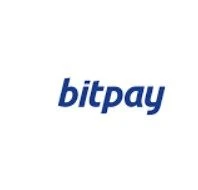
Founded in May, 2011, as an exclusive bitcoin payment service provider, BitPay has emerged as the leading crypto payment solution for global crypto users. With its headquarters in Atlanta, USA, BitPay offers crypto payment solutions across the USA and UK. BitPay also holds multiple licenses depending on every state’s jurisdiction in the USA.
BitPay enables users to transact with 15+ cryptocurrencies including Bitcoin, Bitcoin Cash, Ethereum, Litecoin,etc., and 8 fiat currencies – AUD, CAD, USD, GBP, EUR, MXN, ZAR and NZD. Being the earliest in business, BitPay is known for its ease-of-use and reliable customer support. BitPay also offers exclusive blogs and cryptocurrency guides for new users.
BitPay is also trusted by some users for its solid security features. It offers a 2FA for users and deploys the SSL encryption to safeguard users’ data.
For all its state-of-art security and payment features, BitPay charges a commission fee varying from 1% + 25 cents to 2% + 25 cents, depending on the monthly transaction amount. BitPay offers a volatility shield by locking the exchange rate, thereby saving users from the exchange rate risk.
Lastly, BitPay also allows users to customize payouts in the form of settling mobile POS checkouts, drafting recurring billing and invoices, etc. Therefore, BitPay becomes an ideal payment gateway solution for individual users as well as small businesses.
- Pros
- Locks-in exchange rates
- Allows multi-user access
- Allows daily payouts through bank transfers and BitPay card
- Cons
- Tiered transaction fees
3. Mifinity
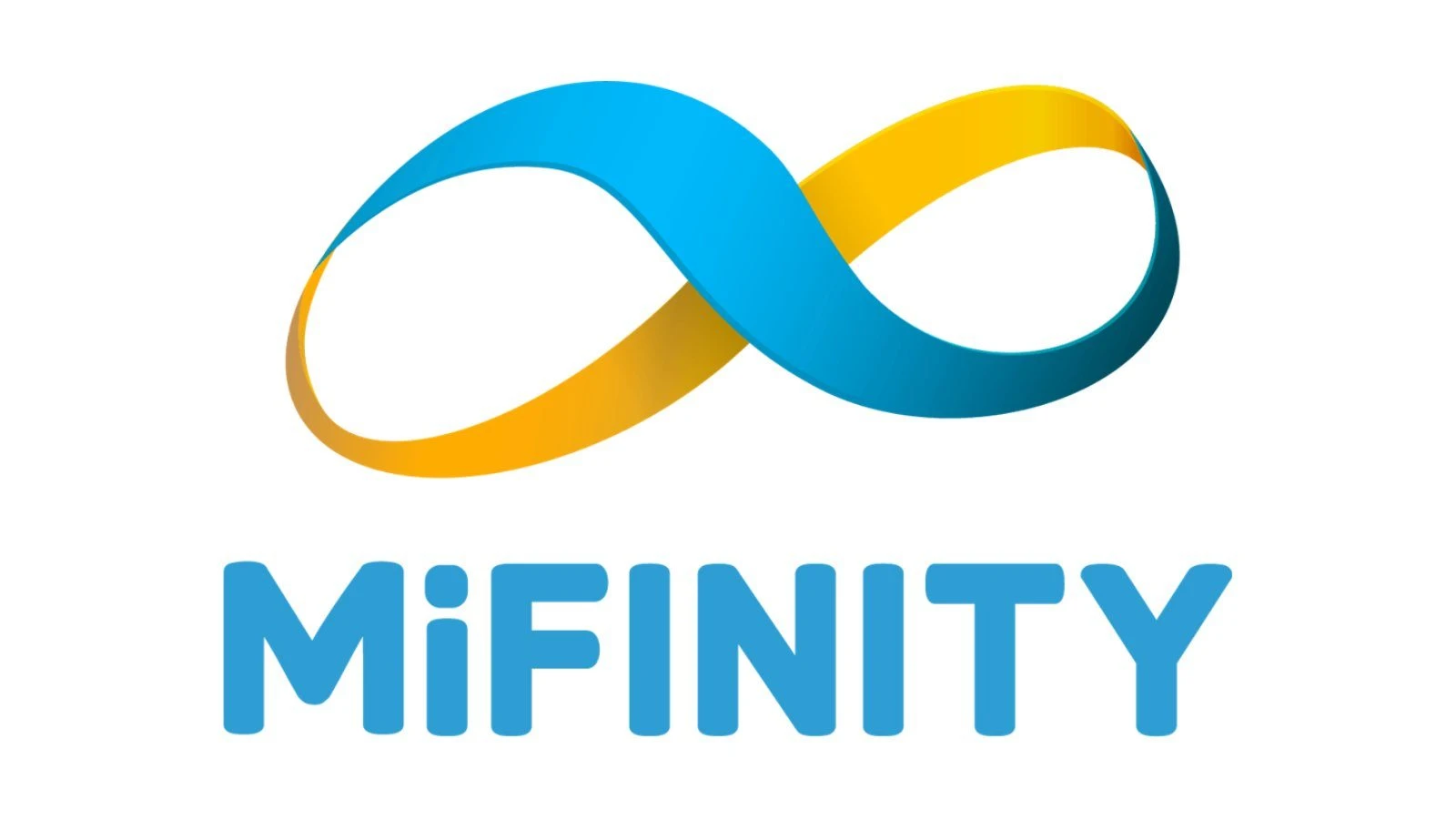
Headquartered in Belfast, UK, Mifinity is among the most reliable payment gateways, especially for users comfortable with fiat transactions. Launched in 2002, Mifinity has earned an impeccable reputation for offering a variety of settlement options in 10+ cryptocurrencies and over 15 fiat currencies.
Boasting an overall rating of 4 / 5, Mifinity has built a strong financial network with 50+ prestigious payment providers, thereby offering lightning-fast and affordable transactions. The platform charges an additional 2.99% for currency conversions and a minimal 1.8% transaction fees for all deposits and withdrawals.
Mifinity is licensed under multiple regulators like the Malta Financial Services Authority, Financial Conduct Authority (FCA) and lastly the Financial Institutions Act, 1994. The platform offers services globally, except certain restricted jurisdictions like Afghanistan, Yemen, Belarus, Congo, Cuba, Côte D’Ivoire and 11 others.
Mifinity also stands out for the platform’s vast security solutions. Minifity conducts annual vulnerability and security audits, deploys state-of-art firewall systems and SSL for customer data encryption. Additionally, the platform follows Strong Customer Authentication (SCA) guidelines and strict timeout for unusually long duration of inactivity.
Consequently, despite the lengthy registration process, customers prefer Minfinity for its reliable security features. However, customer KYC is mandatory over the platform. Users cannot transaction anonymously over infinity.
Mifinity offers a unique eVoucher feature that allows users to fund their wallet without sharing their bank card details. It also provides attractive referral benefits (earn 18-35% referral revenue) to retain existing customers and invite new ones. Owing to some commendable strategic partnerships and high reliability, Milfinity has become an ideal payment gateway for crypto users from various backgrounds- students, travelers, traders, bettors, and more.
- Pros
- Multiple deposit and withdrawal options
- Competitive transaction fees
- Global coverage and multiple currency options
- Convenient, fast and seamless to use
- Cons
- Time-consuming registration process
- Maximum transaction limits for different payment partners
- Occasional delays in KYC verifications
4. Paypal
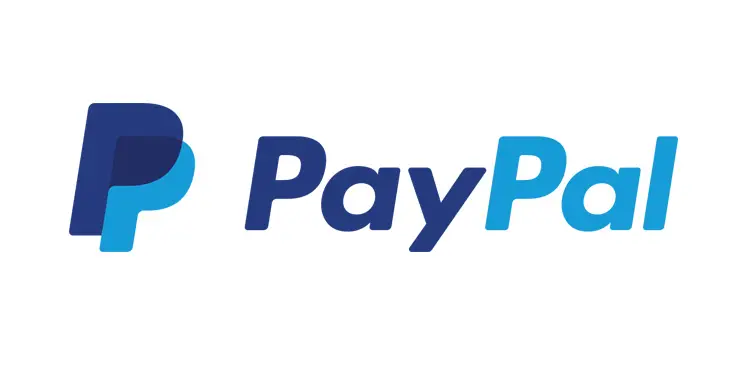
Paypal, America’s leading fintech multinational, launched its crypto transactions’ wing in 2022, thereby becoming the most convenient crypto payment gateway for all existing paypal merchants and other users. Paypal accepts almost every fiat currency and charges no extra fees for currency conversions. It supports Bitcoin, Bitcoin Cash, Ethereum and Litecoin.
Paypal deploys multiple strategies to secure its user data and prevent fraudulent practices. In addition to email and OTP verifications, Paypal undertakes key pinning using TLS encryption. Moreover, Paypal’s advanced fraud detection technology acts as an additional preventive layer for users’ data.
Paypal holds separate licenses for everyåjurisdiction it caters to. Users can also access the website and Paypal application in every different language. The platform charges no additional commissions for converting cryptocurrencies to fiat and vice versa. However, marchants are charged a standard monthly fee and another online payment of 3.49% + 49 cents.
Paypal is relatively new to the crypto space and is already making commendable progress in terms of user base and growth. Some users may find the platform fees relatively higher, but the platform’s security benefits make up for the higher fees. Lastly, the various awareness campaigns and user guides available on the platform make Paypal an ideal payment gateway for its existing and potential users.
- Pros
- Converts crypto to fiat currency at no additional cost
- Commendable security offerings
- Easy sign up process
- Cons
- Expensive transaction fees
- Charges monthly fees depending on transaction types
5. Coinmama
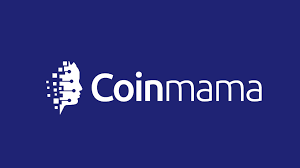
Coinmama is our most recommended payment gateway for crypto beginners. Popular for its user-friendly interface and prompt customer support, Coinmama enjoys an average rating of 4.3 /5. Established in 2013, Coinmama offers hassle-free transaction processing for depositing and withdrawing cryptos using fiat currencies with multiple payment options like debit/credit cards and bank transfers.
Registered in Ireland, Coinmama offers services globally, excluding some restricted territories like Cuba, Iran, North Korea, Sudan, Syria, and more. The platform strictly adheres to rules and regulations of the land, i.e., as per the user’s country of residence. It requires a regular KYC as it falls under the purview of Money Service Business (MSB).
Coinmama enables users to transact in 15+ cryptocurrencies like Bitcoin, Ethereum, Ripple, Litecoin, etc. and supports almost every fiat currency transaction. This makes Coinmama extremely convenient to use, especially for new crypto users. Moreover, the platform offers informative blogs and crypto education to help beginners. However, Coinmama currently does not offer a crypto wallet. Users need to connect a third-party wallet to store their digital coins.
To ensure security of users’ data, Coinmama completely encrypts personal information and documents, thereby being GDPR compliant. Moreover, fund-related information like debit and credit card details are not stored at all, thus eliminating the risk of security breach or data leaks.
Overall, Coinmama is suitable for bitcoin investments using various fiat currencies. Despite relatively higher commission fees, between 0.99% – 3.99%, its user-friendly interface and prompt service makes Coinmama, most crypto users’ preferred patent gateway.
- Pros
- Multiple fiat and crypto currencies supported
- Simple, user-friendly interface
- Prompt and reliable customer service
- Wide range of payment methods available
- Cons
- Relatively higher commission fees
- Service restricted in over 46 territories/areas
6. NixMoney
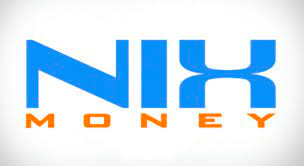
Established in 2014, NixMoney is a digital payments system that enables users to transact in Bitcoin and other cryptocurrencies in an anonymous and secure manner. The platform serves customers globally. However, the website offers support in only two languages – English and Russian.
NixMoney supports five cryptocurrencies – Bitcoin, Feathercoin, Peercoin,Cryptocoin and Litecoin. It allows transactions in two fiat currencies – USD and EUR. NixMoney enables users to send or receive crypto and fiat currencies through its listed exchanges. However, users can store their coins in any wallet of their choice.
NixMoney charges a competitive, fixed commission fee of 0.5% of the transaction amount. However, the minimum transaction fee will be $0.05 or 0.05 €. NixMoney ensures transparency across all transactions. It implements a secure SMS PIN system for users to prevent frauds.
NixMoney boasts instant transactions or payments that reflect in 0.4 seconds for both senders and receivers. They have focused on creating a comfortable user interface that enables even beginners to accept crypto payments.
Lastly, NixMoney also offers multiple API options for retailers, gambling sites, etc. to set up crypto payments mechanisms. Despite the limited variety of currencies, NixMoney’s ease-of-use, transparency and anonymity make it an ideal payment gateway for retailers and crypto gambling enthusiasts.
- Pros
- Instant payments
- Low platform commission
- Simple user-interface
- Cons
- Supports limited currencies
- Customer support is available in limited languages
7. NOWPayments

NOWPayments is a cryptocurrency payment gateway headquartered in Amsterdam, Netherlands. Established in 2019, NOWPayments offers a wide-range of crypto assortments and easy-to-implement APIs. NOWPayments is steadily growing and contributing to the worlds of fintech, Bitcoin and cryptocurrency payments.
NOWPayments supports over 150 cryptocurrencies like Bitcoin, Ethereum, Litecoin and more. It enables instant payouts in EUR. However, it also supports various other fiats. NOWPayments has deployed a simple user-interface for accepting payments in various cryptocurrencies, converting it to fiats and withdrawing it swiftly.
NOWPayments charges a standard 0.5% commission fees across all transactions. Such competitive charges make NOWPayments an ideal payment gateway for small businesses in Europe. However, NOWPayments also charges a fiat withdrawal fee of 2.3% – 1.5%, depending on transaction volume.
NOWPaymets offers customized white-label solutions for gambling and betting sites, with quick-launch and lowest deposit minimums, making it convenient for gambling and betting sites to accept cryptocurrencies. NOWPayments also allows users to remain anonymous, thereby ensuring safety and security of users, their funds and data.
These features make NOWPayments an excellent payment gateway for all businesses and users working under the jurisdiction of the European Union. NOWPayments also boasts a global reach, thereby allowing users from across the world to dive in and benefit from the ease and low-costs of the platform.
- Pros
- Instant payouts in EUR
- Brilliant APIs and white-label solutions
- Wide range of crypto and fiat currencies supported
- Cons
- Does not accept fiat payments
- High fees for fiat withdrawals
8. Lunu

Founded in 2018 in Berlin, Germany, Lunu is a 21st-century tech startup that focuses on seamless crypto and fiat payments, using mobile terminals, widgets, pay-by-link and applications for cashier systems. Lunu deploys an innovative approach to accepting payments, making it easy for businesses with POS terminals or online websites to accept crypto payments.
Lunu uses an omnichannel approach for accepting crypto payments. It accepts 9 major cryptocurrencies including Bitcoin, Ethereum, USDC, USDT, Ripple, Tron, Binance and more. It offers same-day settlements in retailer accounts for over 70 fiat currencies. Moreover, Lunu has integrated with over 60 popular crypto wallets for secure payments, such as Trust Wallet, MetaMask, Binance Pay, Blockchain Wallet, Coinbase, and more.
Lunu charges a standard 1% commission fee from retailers for all transactions. These fees may vary with the mode of payment (online or offline) and the region. However, the fees are competitive and convenient, given the 0% risk of crypto volatility.
Lastly, Lunu fully complies with the European Union’s 5th AML directive. Therefore, it requires mandatory KYC and users cannot transact anonymously using Lunu. Overall, Lunu deploys the best infrastructure to offer ease of payments to small businesses, retailers and other users. The founders’ approach to making Lunu socially responsible, makes the platform stand apart from its competitors.
- Pros
- Same-day payouts/settlements
- Zero crypto volatility risk
- No chargebacks or risk of fraud
- Cons
- Requires mandatory KYC
- More suitable for businesses, not individual users
Best Cryptocurrency Payment Gateways Comparison Table
| Payment Gateway | Merchant Fees | Accepted Cryptocurrency Types | Supported Fiat Currencies | Ecommerce Plugins and Integrations | Settlement Options |
|---|---|---|---|---|---|
| Coinspaid | Zero Merchant Fees; Currency Conversion Fees as applicable | 30+ cryptocurrencies including Bitcoin, Ethereum, Ripple, USDT, and more. | 20+ fiats including USD, CAD, GBP, EUR, and more. | N/A | Fiat currency, cryptocurrency, bank tranfers through SEPA or SWIFT |
| BitPay | 1% + 25 cents to 2% + 25 cents | 15+ including Bitcoin, Bitcoin Cash, Ethereum, Litecoin,etc., | 8 fiat currencies – AUD, CAD, USD, GBP, EUR, MXN, ZAR and NZD | 14 including Shopify, Magento, Shopify, etc. | Fiat currency, cryptocurrency, debit/credit cards, bank transfers |
| Mifinity | 1.8% on all deposits and withdrawals; 2.99% for currency conversions | 10+ including Bitcoin, Bitcoin Cash, Dai, Ethereum, Litecoin, Ripple, Stellar Lumens, and Tether. | 15+ including AUD, CAD, CHF, CNY, RMB, CZK, and more. | N/A | Mastercard, Visa, Bank Wire Transfers, SEPA Transfers, Union Pay, MiFinity eVoucher, Interac -Transfer, eWallets, SPEI, Western Union, Perlas Terminal |
| PayPal | Zero conversion fees; $0-$30 Monthly Fees; 3.49% + $0.49 transaction fees | Bitcoin, Bitcoin Cash, Ethereum, Litecoin | 100+ including USD, EUD, CAD, GBP, and more | eBay, WooCommerce, Magento, Amazon | Fiat currency, cryptocurrency, bank transfers |
| Coinmama | 0.99 – 3.99% based on loyalty level | 15+ including Bitcoin, Ethereum, Ripple, Litecoin, etc. | Accepts all fiat currencies. Rates displayed in USD, EUR, GBP, CAD, or AUD. | N/A | Fiat currency, cryptocurrency, debit/credit cards, bank transfers. |
| NixMoney | 0.5% of the transaction amount (minimum: $0.05 or 0.05 €) | 5, namely Bitcoin, Feathercoin, Peercoin,Cryptocoin and Litecoin | USD and EUR | N/A | Cryptocurrency, Fiat Currency, bank transfers and cards through listed exchanges |
| NOWPayments | 0.5% on all transactions Fiat withdrawal fee of 2.3% – 1.5%, depending on transaction volume | Supports 200+ cryptos including Bitcoin, Litecoin, and others. | Supports EUR and multiple other fiat currencies | Shopify, WooCommerce, Magento, Opencart, PrestaShop, shopware | Cryptocurrency, Fiat Currency |
| Lunu | 1% transaction fees | Accepts 9 cryptocurrencies including Bitcoin, Ethereum, USDC, USDT, Ripple, Tron, Binance and more | 70 fiat currencies like EUR, UDS, GBP and more. | Shopify, WeeCommerce, Magento, Big Commerce, PHP, Presta Shop | Fiat currency, bank transfers |
Introduction to Crypto Payment Gateways
Cryptocurrency, which is often used synonymously with Blockchain, is a virtual currency that first came into being with the launch of Bitcoin. Bitcoin was created in 2009 by an unknown person or group of people using the pseudonym Satoshi Nakamoto. Bitcoin operates on a decentralized peer-to-peer network, allowing for secure, direct transfers without the need for intermediaries.
Since the launch of Bitcoin, thousands of cryptocurrencies such as Ethereum, Binance, Tether etc. have been created with their own unique features and use cases. This paved the way for cryptocurrency investment. The volatile nature of cryptocurrency prices has made it a popular investment vehicle, although it is also considered a high-risk investment. Over the years, it has become widely accepted as a form of payment, with a growing number of merchants accepting it as a payment option. Currently, there are over 5,300 different cryptocurrencies being traded, with a combined market value of more than $895 billion. Our research suggests that the global bitcoin payment system will reach a value of $630 million by 2025, with an estimated annual growth rate of 23.4% between 2023 and 2025. This increasing popularity of cryptocurrencies, especially Bitcoin, has led to a significant demand for crypto payment gateways. Other popular cryptocurrencies that are being traded on these platforms include Ripple, Litecoin, Bitcoin Cash, and others.
Crypto payment gateways are platforms that allow merchants to accept cryptocurrency as a form of payment in e-commerce transactions. They facilitate the conversion of cryptocurrency into fiat currency, making it easier for merchants to manage their financial transactions. They offer a secure and seamless way for merchants to accept cryptocurrencies, protecting their transactions from fraud and hacking. They also offer a range of features, including instant currency conversion, fraud protection, and easy integration with e-commerce platforms.
As cryptocurrencies continue to gain widespread acceptance on e-commerce platforms such as Microsoft Store, Overstock, Namecheap, NewEgg, ExpressVPN, AMC Theatres, Shopify, Rakuten etc., crypto payment gateways are becoming an increasingly important tool. They provide a secure and convenient way to transact using cryptocurrency, making it easier for merchants to manage their financial transactions, and stay ahead of the curve in the rapidly evolving digital economy.
Importance of Security in Crypto Payment Gateways
 Cryptocurrency transactions involve sensitive information, such as financial and personal data, which makes security a top priority. As a result, robust security measures are essential to protect against cyber-attacks, hacking, and other forms of fraud. Some common security measures include:
Cryptocurrency transactions involve sensitive information, such as financial and personal data, which makes security a top priority. As a result, robust security measures are essential to protect against cyber-attacks, hacking, and other forms of fraud. Some common security measures include:
- SSL Encryption: This technology encrypts sensitive data transmitted over the internet, making it unreadable to unauthorized users.
- Fraud Detection: Fraud detection algorithms are designed to identify and prevent unauthorized transactions, thereby reducing the risk of loss or theft.
- Two-Factor Authentication: This security measure adds an extra layer of protection by requiring users to provide two separate forms of authentication, such as a password and a code sent to their mobile device, to access their accounts.
Despite these security measures, there are still potential risks and challenges associated with using cryptocurrency for transactions. For instance:
- Volatility: Cryptocurrency prices are highly volatile and can fluctuate rapidly, making it difficult to predict the value of a particular currency at any given time.
- Security Breaches: Cryptocurrency exchanges and wallets are potential targets for hackers, and security breaches can lead to the loss of funds.
- Regulation: The regulatory landscape for cryptocurrency is still evolving, and there may be restrictions or limitations on the use of certain currencies in particular countries.
- User Error: Cryptocurrency transactions are irreversible, so it is crucial for users to take the necessary precautions to protect their assets, such as backing up their wallets and securing their private keys.
While the use of cryptocurrency for transactions offers many benefits, it is important to be aware of the potential risks and challenges, and to take the necessary steps to protect assets and information.
Compatibility With Various Cryptocurrencies
One of the most important factors to consider when choosing a crypto payment gateway is compatibility with the cryptocurrencies like Bitcoin, Ethereum, Litecoin, and more, which the business wishes to accept. The more cryptocurrencies a gateway supports, the more options there are for accepting payments from a wider range of customers.
Transaction Speed and Fees
The transaction speed of a crypto payment gateway is important, especially for merchants who process high volumes of transactions. Most gateways process payments instantly, and can be as fast as under 10 seconds, but sometimes it may take 3-5 hours or even 24 hours for the payment confirmation. A gateway with a fast transaction speed can ensure that payments are processed and settled quickly, reducing the risk of failed transactions and increasing customer satisfaction. Additionally, it’s important to consider the transaction fees charged by the gateway as these can significantly impact a merchant’s profits. On an average, these platforms charge about 1-2 % fees on all transactions but some platforms may even go up to 3.5%. A merchant must make sure to compare the fees charged by different gateways to choose the one that offers the best value for their business. NowPayments and Coinbase are two of the best platforms when compared in terms of seamless processing and low transaction fees.
Integration Options with Existing e-Commerce Platforms
The ability to integrate with existing e-commerce platforms is another key factor to consider. A gateway that can be easily integrated with a merchant’s platform can help streamline the payment process and reduce manual effort. Thus, a merchant should look for a gateway that offers a variety of integration options, including plugins for popular e-commerce platforms, APIs for custom integrations, and others.
Customer support and resources:
Good customer support and resources can be crucial in ensuring the smooth operation of crypto payment gateways. Thus, a merchant should look for a gateway that offers 24/7 customer support via multiple channels, such as email, chat, or phone. Moreover, a good gateway must provide a variety of resources to help businesses get the most out of the platform, such as tutorials, guides, and FAQs.
Options for invoicing and recurring payments:
For businesses that need to invoice customers or process recurring payments, it’s important to choose a crypto payment gateway that offers these features. Thus, the business must look for a gateway that provides easy-to-use invoicing and recurring payment tools to streamline these processes and reduce manual effort.
Multi-language and multi-currency support:
If a business operates in multiple countries or serves customers from around the world, it’s important to choose a crypto payment gateway that offers multi-language and multi-currency support. This will help ensure that the business’ customers can make payments in their preferred language and currency, which can improve their overall experience and increase the possibility of repeat business.
Payment tracking and reporting:
To effectively manage crypto payments, it’s important for a business to choose a gateway that provides robust payment tracking and reporting tools. These tools can help keep track of incoming payments, reconcile transactions, and generate reports to help make informed business decisions.
Refund and dispute management:
Last but not least, a business must ensure to choose a crypto payment gateway that offers robust refund and dispute management features. These features can help the business efficiently handle refund and dispute requests, reducing the risk of fraud and improving customer satisfaction. Thus, the business must choose a gateway that provides easy-to-use refund and dispute management tools, such as automated dispute resolution, dispute tracking, and others.
Integration and Implementation
Integrating a crypto payment gateway with an e-commerce platform involves the following steps:
- Choose a crypto payment gateway: A merchant must research and select a reputable and secure cryptocurrency payment processor that supports the cryptocurrencies they want to accept.
- Integrate API: Integrate the API of the chosen payment gateway into the e-commerce platform. This step requires technical expertise and should be performed by a developer.
- Test the integration: Test the integration thoroughly to ensure that it is working as expected, and that there are no security vulnerabilities.
Technical requirements and considerations for implementation:
- Security: Ensure that the payment gateway implements proper security measures, such as encryption and fraud protection, to protect sensitive data.
- Support for cryptocurrencies: Ensure that the payment gateway supports the cryptocurrencies that the business wants to accept. Moreover, the cryptocurrencies should be easily convertible to fiat currency.
- User Experience: The checkout process should be user-friendly and straightforward to avoid abandoned carts.
Tips and best practices for successful integration:
- Stay up-to-date: A merchant should stay informed about the latest developments and updates in the cryptocurrency space to ensure that the selected payment gateway is always up-to-date and secure.
- Partner with a reliable payment gateway: Partner with a reputable and reliable payment gateway to ensure that the transactions are processed smoothly and securely.
- Communicate clearly with customers: A merchant should clearly communicate to customers that they accept cryptocurrency payments, and educate them on how to use the payment gateway.
- Monitor and evaluate: Continuously monitor and evaluate the performance of the payment gateway, and make changes as needed to optimize the user experience and ensure security.
Expert Conclusion
Cryptocurrency has the potential to greatly impact e-commerce in the future by offering faster, cheaper, and more secure transactions. The market size of cryptocurrency payment apps, valued at $545 million in 2021, is anticipated to experience a growth rate of 16.6% each year, from 2022 to 2030.
A survey conducted by Coinbase found that 59% of US cryptocurrency owners are between the ages of 18 and 34, indicating that this demographic is increasingly interested in adopting cryptocurrency. This could have implications for e-commerce, as younger consumers are likely to be more open to new payment methods and technologies. However, the widespread adoption of cryptocurrency in e-commerce also raises potential challenges, such as the need for greater consumer education and protection, and the potential for increased volatility and market speculation.
The future potential of cryptocurrency in e-commerce is significant. It’s important for businesses to integrate a crypto payment processor quickly in order to take advantage of this growing trend.
How do Crypto Payment Gateways ensure security?
Gateways employ various security measures like:
- SSL Encryption: This is a standard security technology that encrypts the connection between the user’s device and the payment gateway server, ensuring that any sensitive information is transmitted securely.
- Two-factor authentication: This is an additional layer of security that requires users to provide two forms of identification before they can access their account. This could be a password and a code sent to their phone or an email, for example.
- Offline wallets: An offline wallet, also known as cold storage, is a secure storage option for digital assets that is not connected to the internet. By storing funds in an offline wallet, they are protected from potential online security threats such as hacking or malware attacks.
What are the key features to look for in a Crypto Payment Gateway?
A crypto payment gateway’s features are tailored to meet the specific needs of a business, but an advanced payment gateway should have the following capabilities:
- Compatibility with various cryptocurrencies
- High transaction speed and low fees
- Easy integration options with existing e-commerce
- Good customer support and resources
- Easy-to-use invoicing and recurring payment tools
- Multi-language and multi-currency support
- Robust payment tracking and reporting tools
- Refund and dispute management features
How do I integrate a Crypto Payment Gateway with my e-commerce platform?
To integrate a crypto payment gateway with an e-commerce platform:
- Choose a crypto payment gateway: A merchant must research and select a reputable and secure cryptocurrency payment processor that supports the cryptocurrencies they want to accept.
- Integrate API: Integrate the API of the chosen payment gateway into the e-commerce platform. This step requires technical expertise and should be performed by a developer.
- Test the integration: Test the integration thoroughly to ensure that it is working as expected, and that there are no security vulnerabilities.
What are the benefits of using a Crypto Payment Gateway for my business?
Cryptocurrency has certain aspects that make it particularly appealing to businesses of different sizes and industries. One advantage is the lower processing fees, which can be as low as 0.8% compared to over 3.5% with traditional fiat transactions. Another benefit is the elimination of chargeback fraud and rolling reserves, as all blockchain transactions are final. Crypto also allows businesses to expand globally due to its accessibility and the ability to reach a wider market. Additionally, crypto gateways offer a 99% acceptance rate, instant payment processing, and 24/7 availability, compared to the 15% decline rate and slow processing times of traditional payments.
Are there any additional costs associated with using a Crypto Payment Gateway?
Crypto payment gateways typically charge several types of fees, including:
Transaction fees: A fee charged by the gateway for processing each transaction, which can be paid by the merchant or the customer. Usually ranges between 0.5%- 2%.
Deposit fees: A fee charged for depositing funds into the gateway’s wallet, which is typically paid by the merchant. This varies between 0-1% depending on the platform.
Withdrawal fees: A fee charged for withdrawing funds from the gateway’s wallet, which is typically paid by the merchant. On an average, about 0.2% is charged on withdrawals.
Conversion fees: A fee charged for converting one cryptocurrency into another, which can be paid by the merchant or the customer. While it is nominal for most platforms, it may go as high as 1-2% for exchanging cryptocurrency to fiat currency.
Monthly/Annual fees: A fee charged for using the gateway’s services on a monthly or annual basis, which is typically paid by the merchant. This may either be a fixed amount, like $30 per month charged by Coinbase, or a certain percentage that is included in the transaction fees.
It is important to note that different payment gateways may charge different fees and that these fees may also vary based on the type and size of the transaction. It’s recommended that merchants thoroughly research and compare the fees charged by different payment gateways before choosing one.
Which is the best crypto payment gateway?
There are many options, each offering unique features for different clients. What is best for you may not work for another user. However, if you are looking for reliable recommendations to get you started, consider Bitpay, Coinspaid, and MiFinity.
Which is the best crypto payment gateway in the US?
The US government is strict about the companies offering its citizens services. That means a payment gateway must have a leading reputation to be licensed in America. BitPay is a top US crypto exchange headquartered in Atlanta. We recommend it.
Payment Gateways
Facts Checked by Josip Putarek, Senior Author















 shahnakul23@gmail.com
shahnakul23@gmail.com 